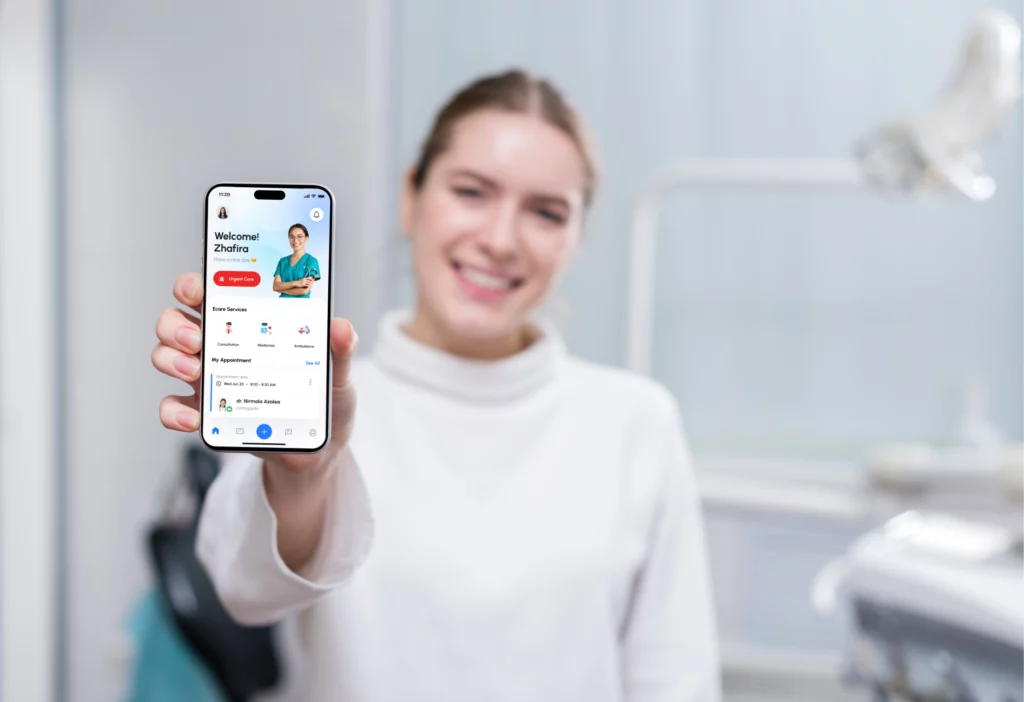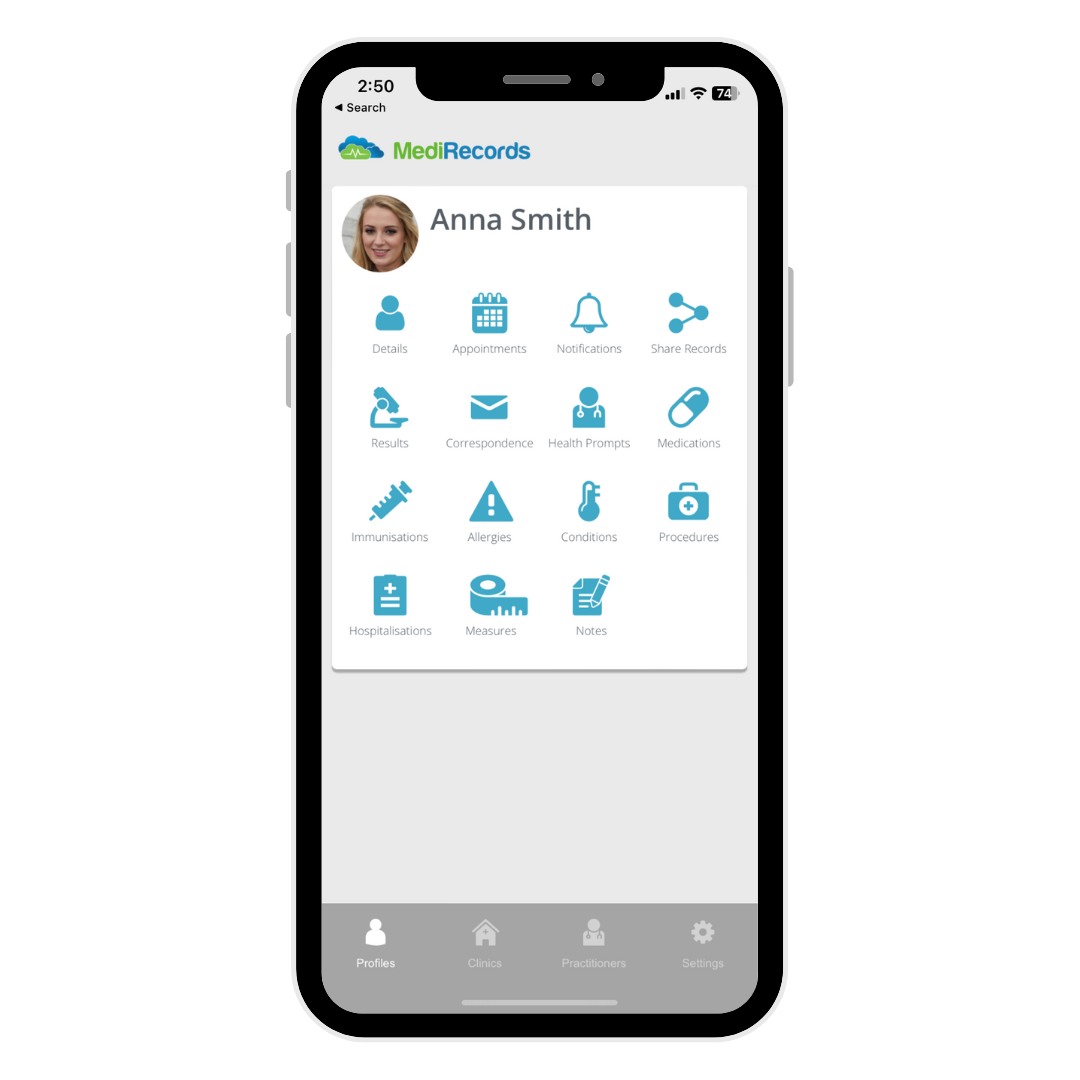Transforming Patient Experience with a User-Friendly Mobile App for Clinics
Transforming Patient Experience with a User-Friendly Mobile App for Clinics
Blog Article
The Future of Health Care: Why Clinics Required a Mobile Application Today
As the medical care landscape continues to develop, clinics encounter placing pressure to adjust to individual expectations for better comfort and availability. The assimilation of mobile applications can serve as a vital technique for boosting patient involvement and improving procedures.
Transforming Client Expectations
As the landscape of health care progresses, individual assumptions are undertaking a considerable transformation. Today's people are increasingly seeking convenience, ease of access, and personalized care.
Moreover, individuals are ending up being more informed and equipped, frequently investigating treatments and problems on-line before examinations. This heightened awareness is coupled with a demand for openness in healthcare processes, including expense quotes and therapy choices. Consequently, companies are obliged to adapt by adopting digital tools that boost the client experience.
The assumption for timely and reliable interaction has never been greater, with several people considering responsiveness an essential part of high quality treatment. mobile app for clinics. In this progressing landscape, healthcare companies must acknowledge these changing assumptions and take advantage of mobile applications to promote a more patient-centric method, ensuring that they not only meet but surpass the requirements set by today's educated consumers
Enhancing Client Involvement

Mobile applications help with interaction in between patients and health care companies, enabling real-time visit scheduling, reminders for medication adherence, and straight messaging features. These capabilities not just enhance ease yet additionally construct a feeling of responsibility among individuals. In addition, mobile applications can use academic web content tailored to individual demands, helping people much better recognize their problems and treatment options.
The integration of gamification components within healthcare applications can likewise inspire people to participate in healthy actions, strengthening favorable way of living modifications. By tracking development and rewarding success, people are much more likely to remain dedicated to their wellness objectives. Inevitably, enhancing client interaction via mobile applications leads to boosted health and wellness results, greater person satisfaction, and an extra collaborative medical care experience. Facilities that prioritize this element will likely see a significant effect on the quality of care delivered.
Simplifying Facility Operations
Streamlining facility procedures is vital for improving operations efficiency and enhancing person care. The execution of mobile applications can considerably decrease management worries, enabling doctor to focus more on individual communications. By automating visit scheduling, individual check-ins, and billing processes, clinics can decrease wait times and enhance general functional performance.
Mobile apps also promote real-time access to client records, allowing medical care experts to make enlightened choices rapidly. This immediacy not only improves the quality of treatment yet likewise minimizes the probability of errors connected with lost or outdated details. Leveraging mobile modern technology sustains a much more orderly strategy to managing client follow-ups and treatment strategies, ensuring that no important steps are neglected.
In addition, mobile apps can simplify inventory administration by offering centers with tools to keep an eye on supplies and drugs effectively. This enables for prompt replenishment and aids stay clear of disruptions in person care due to equip scarcities. By incorporating these functionalities into their daily operations, facilities can produce a more efficient and natural setting, ultimately causing enhanced individual end results and contentment. Accepting mobile innovation is not simply a fad; it is a required evolution in the health care landscape.
Improving Communication Channels
Effective interaction is regularly pointed out as a cornerstone of high quality healthcare shipment. In today's busy medical setting, mobile applications can significantly enhance communication channels between facilities, individuals, and medical care providers. By integrating mobile applications right into their procedures, facilities can help with real-time interactions, making sure that individuals get prompt information concerning their appointments, test results, and treatment strategies.
Mobile apps likewise encourage clients to communicate directly with their healthcare groups via protected messaging attributes. This direct line of interaction cultivates a sense of interaction and enables instant clarification of worries, which can bring about better adherence to therapy procedures. Push alerts can advise patients of upcoming appointments or drug timetables, reducing no-show prices and enhancing total wellness outcomes.

Remaining Competitive in Health Care
In a quickly developing healthcare landscape, organizations should focus on advancement and flexibility to keep an affordable side. The assimilation of mobile applications into medical care services is no longer optional; it is important for facilities aiming to enhance patient involvement, enhance operations, and boost total solution shipment.
As clients progressively rely upon electronic platforms for health administration, clinics that fail to embrace mobile technology danger dropping behind. A well-designed mobile app can use functions such as consultation scheduling, telemedicine examinations, and access to medical documents, providing individuals with comfort and promoting loyalty.

Rivals are additionally investing in mobile options, so remaining ahead requires continual renovation and staying notified regarding technical improvements. Facilities have to not only execute mobile applications however likewise participate in normal updates and refinements. Inevitably, the successful assimilation of mobile technology will differentiate forward-thinking medical care companies and set the standard for patient-centric treatment in an electronic world.
Verdict
Finally, the assimilation of mobile applications in clinics is site essential to attend to the developing landscape of client expectations. By improving person engagement, streamlining operations, and improving interaction channels, facilities can substantially increase wellness results. Furthermore, the adoption of mobile technology positions clinics to stay affordable in an increasingly digital health care setting. Ultimately, the tactical application of mobile apps stands for a critical action towards supplying customized and obtainable health care, thereby meeting the needs of today's equipped patients.
Inevitably, improving person engagement via mobile applications leads to enhanced health and wellness end results, higher client complete satisfaction, and a more joint health care experience.Mobile applications also assist in real-time access to person records, allowing health care experts to make enlightened decisions promptly. In today's fast-paced medical setting, mobile applications can substantially improve interaction networks in between centers, individuals, and health care suppliers.Mobile applications also encourage patients to connect straight with their healthcare groups via safe and secure visit our website messaging functions. Eventually, the critical execution of mobile apps represents a vital step towards providing easily accessible and customized health care, thereby fulfilling the demands of today's equipped patients.
Report this page